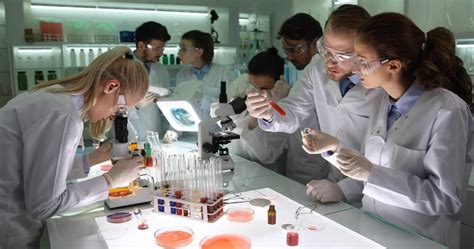5 Forensic Scientist Jobs

Introduction to Forensic Science Careers

Forensic science is a fascinating field that combines science and law to help solve crimes and bring criminals to justice. Forensic scientists use their knowledge of science and technology to analyze evidence and provide critical information to investigators and courts. If you’re interested in pursuing a career in forensic science, there are many different paths you can take. Here are five forensic scientist jobs that you may find interesting:
1. Forensic DNA Analyst

A forensic DNA analyst is responsible for analyzing DNA evidence collected from crime scenes. This can include blood, saliva, skin cells, and other bodily fluids. The analyst uses specialized equipment and techniques to extract and analyze the DNA, and then compares it to known DNA samples to identify potential matches. Forensic DNA analysts typically have a bachelor’s degree in a field such as biology, chemistry, or forensic science, and may also have specialized training in DNA analysis.
2. Crime Scene Investigator

A crime scene investigator is responsible for collecting and analyzing evidence from crime scenes. This can include photographing and documenting the scene, collecting physical evidence such as fingerprints and DNA, and analyzing the evidence to help reconstruct the events surrounding the crime. Crime scene investigators typically have a bachelor’s degree in a field such as forensic science, criminal justice, or a related field, and may also have specialized training in crime scene investigation.
3. Forensic Chemist

A forensic chemist is responsible for analyzing evidence that is related to chemical substances, such as poisons, explosives, and illicit drugs. This can include testing substances to identify their composition, analyzing the chemical properties of evidence, and providing expert testimony in court. Forensic chemists typically have a bachelor’s degree in a field such as chemistry, biochemistry, or forensic science, and may also have specialized training in forensic chemistry.
4. Digital Forensics Specialist

A digital forensics specialist is responsible for analyzing digital evidence, such as computer files, emails, and other electronic data. This can include recovering deleted files, analyzing network traffic, and tracking down the source of cyber attacks. Digital forensics specialists typically have a bachelor’s degree in a field such as computer science, information technology, or forensic science, and may also have specialized training in digital forensics.
5. Forensic Anthropologist

A forensic anthropologist is responsible for analyzing human remains to help identify individuals and determine the cause of death. This can include analyzing skeletal remains, examining wounds and injuries, and reconstructing the events surrounding the death. Forensic anthropologists typically have a bachelor’s degree in a field such as anthropology, biology, or forensic science, and may also have specialized training in forensic anthropology.
🔍 Note: These are just a few examples of the many different careers available in forensic science. If you're interested in pursuing a career in this field, it's a good idea to research the different options and find the one that best fits your skills and interests.
Some key skills and qualifications that are useful for a career in forensic science include: * A strong foundation in science and mathematics * Attention to detail and analytical skills * Ability to work well under pressure and in a team environment * Excellent communication and writing skills * Ability to think critically and solve complex problems
Here is a table summarizing the five forensic scientist jobs:
| Job Title | Job Description | Typical Degree |
|---|---|---|
| Forensic DNA Analyst | Analyzes DNA evidence to identify potential matches | Bachelor’s degree in biology, chemistry, or forensic science |
| Crime Scene Investigator | Collects and analyzes evidence from crime scenes | Bachelor’s degree in forensic science, criminal justice, or a related field |
| Forensic Chemist | Analyzes evidence related to chemical substances | Bachelor’s degree in chemistry, biochemistry, or forensic science |
| Digital Forensics Specialist | Analyzes digital evidence to track down cyber attacks and solve crimes | Bachelor’s degree in computer science, information technology, or forensic science |
| Forensic Anthropologist | Analyzes human remains to help identify individuals and determine the cause of death | Bachelor’s degree in anthropology, biology, or forensic science |

In summary, a career in forensic science can be a rewarding and challenging option for those who are interested in science, law, and problem-solving. Whether you’re interested in analyzing DNA evidence, collecting evidence from crime scenes, or tracking down cyber attacks, there are many different paths you can take in this field.
What is the typical salary range for a forensic scientist?

+
The typical salary range for a forensic scientist can vary depending on factors such as location, experience, and specific job title. However, according to the Bureau of Labor Statistics, the median annual salary for forensic science technicians was around $60,000 in May 2020.
What kind of education and training is required to become a forensic scientist?

+
To become a forensic scientist, you typically need a bachelor’s degree in a field such as forensic science, biology, chemistry, or a related field. Many forensic scientists also have advanced degrees, such as master’s or Ph.D.s, and may have specialized training in areas such as DNA analysis or digital forensics.
What are some of the most common specialties within forensic science?

+
Some of the most common specialties within forensic science include DNA analysis, crime scene investigation, forensic chemistry, digital forensics, and forensic anthropology. These specialties may involve analyzing evidence, collecting and preserving evidence, and providing expert testimony in court.



